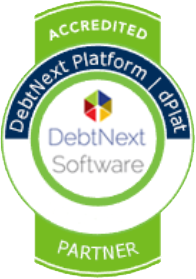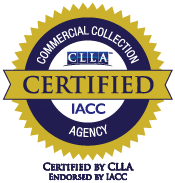Efficient healthcare revenue cycle management (RCM) is essential for reducing claim denials, accelerating reimbursements, and maintaining compliance. By streamlining processes from patient registration to payment posting, providers improve cash flow, reduce administrative strain, and enhance patient satisfaction. Radius Global Solutions optimizes RCM through technology-enabled solutions, compliance expertise, and scalable support, helping healthcare organizations operate more efficiently and prepare for future industry changes.
The Impact of RCM
In today’s healthcare environment, operational efficiency is as essential as clinical excellence. At the heart of operational performance lies revenue cycle management (RCM), the system of processes that captures, manages, and collects revenue from patient services. When managed effectively, RCM ensures that providers are reimbursed promptly, accurately, and in full compliance with regulatory requirements.
For many organizations, however, the complexity of insurance rules, the risk of billing errors, and the administrative demands on staff can disrupt the revenue cycle. This is where Radius Global Solutions provides measurable value, optimizing every stage of the revenue cycle to improve financial performance while freeing clinical teams to focus on patient care.
Understanding the Role of RCM in Healthcare Operations
The revenue cycle begins long before a patient visit and extends far beyond the clinical encounter. It includes:
Patient registration and demographic capture.
- Insurance verification and benefit eligibility checks.
- Accurate coding and charge capture.
- Claims submission to payers.
- Payment posting and reconciliation.
- Follow-up on denials and collections.
When these steps are handled efficiently, they create a seamless workflow that minimizes delays, improves cash flow, and supports a positive patient experience. An optimized RCM process ensures that providers are not only reimbursed faster but also with fewer disputes or resubmissions.
The Risks of Inefficient Revenue Cycle Management
Inefficiencies in the revenue cycle can have far-reaching consequences, including:
- Delayed reimbursements that strain operational budgets.
- Increased days in accounts receivable (A/R), impacting financial stability.
- Higher denial rates requiring costly rework.
- Compliance risks stemming from coding errors or missed regulatory updates.
- Administrative overload for staff, diverting attention from patient care.
These challenges can erode margins and undermine the patient experience, making efficiency a non-negotiable priority for healthcare organizations.
How Radius GS Optimizes the Healthcare Revenue Cycle
Radius GS delivers a structured, results-driven approach to RCM optimization:
- Comprehensive Process Review – Identifying bottlenecks, redundant steps, and high-risk areas within your current workflows.
- Technology-Enabled Solutions – Leveraging AI-assisted coding, automated claim scrubbing, and real-time eligibility checks to reduce errors and accelerate processing.
- Compliance Expertise – Ensuring alignment with HIPAA, CMS, and payer-specific rules to mitigate regulatory risks.
- Scalable Support – Providing flexible staffing models for organizations of all sizes, from specialty clinics to large hospital systems.
The Results of Efficient RCM with Radius
Healthcare providers that partner with Radius GS typically see:
- Lower claim denial rates and higher first-pass resolution.
- Shorter payment cycles and reduced days in A/R.
- Improved cash flow predictability.
- Increased patient satisfaction due to accurate, transparent billing.
- Staff freed from repetitive administrative tasks to focus on direct patient engagement.
Preparing for the Future of Healthcare RCM
The healthcare landscape continues to evolve, and so do the demands on revenue cycle processes. Radius GS helps providers prepare for:
- Value-based care models that require new performance metrics and reimbursement approaches.
- Telehealth billing integration, ensuring virtual care services are documented and reimbursed properly.
- Advanced analytics, offering insights into payer trends, claim performance, and process improvement opportunities.
By combining technology, expertise, and a proactive approach, Radius ensures your revenue cycle can adapt to future challenges while maintaining operational stability.
Optimizing RCM
Efficient revenue cycle management is the foundation for both operational excellence and financial health in healthcare. By optimizing RCM, providers can ensure faster reimbursements, reduce compliance risks, and dedicate more time to patient care.
Radius Global Solutions delivers the expertise, technology, and scalable support needed to transform RCM from a complex administrative task into a strategic advantage.
Ready to improve your revenue cycle efficiency?
Learn more about Radius GS Healthcare Solutions or contact us today to schedule a revenue cycle assessment.



